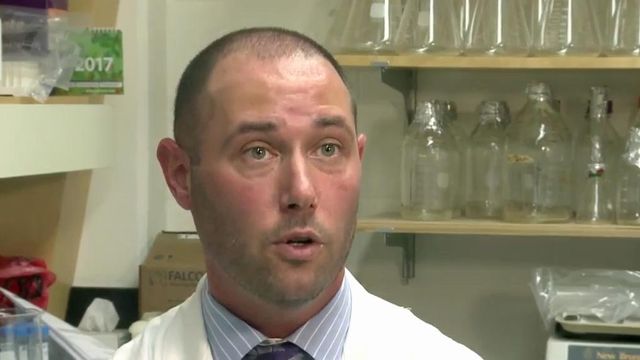Duke neurosurgeon: Many factors in McCain's favor as he undergoes cancer treatment
Early reports of McCain's illness were attributed to a blood clot above the eye, but exams led to a diagnosis of a brain tumor called glioblastoma.
Posted — UpdatedEarly reports of McCain’s illness were attributed to a blood clot above the eye, but exams led to a diagnosis of a brain tumor called glioblastoma.
“Glioblastoma is probably one of the most aggressive brain tumors that we treat,” said Duke neurosurgeon Dr. Peter Fecci.
Fecci said, on average, survival after surgery and treatments for a glioblastoma is between 13 and 17 months.
Despite McCain’s 80 years of age, Fecci said he has many factors in his favor as he faces aggressive treatments at the Mayo Clinic in Phoenix.
“It sounds like he’s a very sturdy and healthy individual and that does play well to him,” he said.
Fecci said there have been many advances in brain cancer treatment in the past decade, including experimental therapies that use the body’s own immune system to kill cancer cells.
Duke’s frequent trials often attract glioblastoma patients from around the country and beyond.
“And we actually do have people currently at Duke that are being treated that are now more than 10 years out with these tumors. So, it does range substantially these days whereas 10 to 20 years ago, that wouldn’t have been feasible,” Fecci said.
Fecci said doctors don’t talk about a cure for glioblastoma patients. The goal is to keep it at bay for as long as possible.
Surgery, chemotherapy and radiation are the standard approach, and experimental therapies may help improve a patient’s outlook.
Fecci said the next wave of therapies will combine different treatments and personalized therapy around the specific molecular markers of the patient’s tumor.
A tumor in the left frontal region, where it is reported McCain’s tumor was located, can affect speech and strength on the right side of the body, he said.
• Credits
Copyright 2024 by Capitol Broadcasting Company. All rights reserved. This material may not be published, broadcast, rewritten or redistributed.






